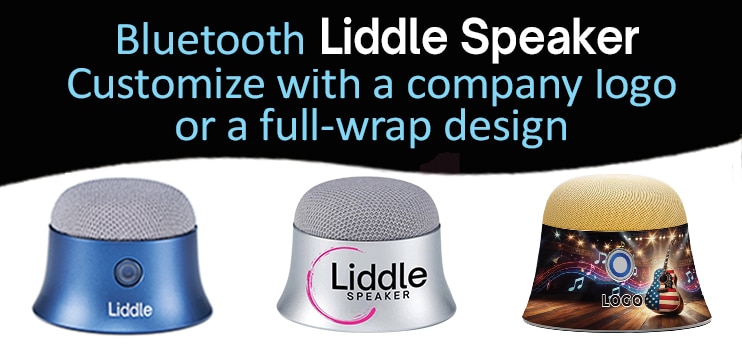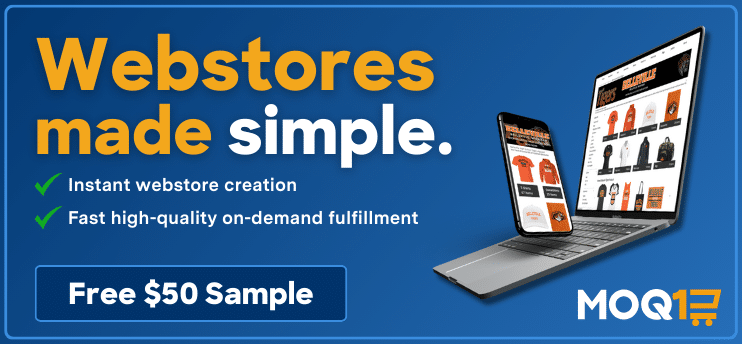Defining Risk For The Promotional Products Industry
Compliance with manufacturing standards continues to be a hot topic for the promotional products industry. It is regularly on the agenda at industry-sponsored training and education forums and written about by our industry media.
As the industry’s first and only third-party validated compliance accreditation organization, the Quality Certification Alliance (QCA) frequently receives inquiries from industry professionals concerned about standards, standards-development bodies and industry self-regulation. Confusion and misunderstandings often reside at the core of these questions.
As industry peers, we would like to address some of the more common points raised:
- Why would an industry be satisfied with self-regulation?
- Does self-regulation really make an industry more compliant and disciplined?
- What does a standards organization do?
- Is QCA a standards development organization?
- Some have implied that QCA appears to be intended for large industry companies only. Why is QCA structured the way it is?
- How can the board of a nonprofit entity be made up of for-profit industry companies and not have anti-competitive designs?
- Does an industry of our size really need third-party solutions like QCA?
Industry Practices That Became “Standard”
The very essence of a standards organization is to make life easier, safer and improve overall efficiency.
Industry-based standards organizations have long existed. Some standards provide compatibility for improving the utility of a product, while others establish management practices that positively affect consumer safety, port security and environmental issues. Whether product or process, industry standards are simply best practices.
Best practices are, by their nature, voluntary. When an industry best practice gains momentum, frequently the government or the market will adopt those best practices as standards.
Examples of industry-based standards that have gained acceptance in law and the market include:
ASTM F-963 Originally defined by the Toy Industry of America, this standard is now embodied in U.S. law as a component of the Consumer Product Safety Improvement Act of 2008.
FLA Labor Standards An outgrowth from a White House-sponsored initiative, the Apparel Industry Partnership (AIP) is a roundtable comprised of a handful of large apparel labels, non-governmental organizations and college students addressing concerns for labor rights in a manufacturing setting. QCA benchmarked its social accountability standards and audit processes with FLA in 2015.
What Are The QCA Pillars Of Compliance?
The QCA Compliance Accreditation Program is comprised of Five Pillars of Compliance© that include Product Safety (and Regulatory Compliance), Quality, Social Accountability, Supply Chain Security and Environmental Stewardship.
Like many compliance accreditation programs, QCA employs a proprietary gap analysis and corrective actions that are validated by third-party audit providers. No applicant is accredited and no member is re-accredited without completing the gap analysis, the required audits and two mock recalls of products randomly selected from their line.
The standards against which QCA audits are performed are:
- ISO-9000 – Product Safety, Quality and Elements of Environmental Stewardship
- UN Global Compact Principles – Social Accountability and Balance of Environmental Stewardship (a questionnaire developed in-house and benchmarked by Elevate, a third-party audit provider for social accountability)
- CTPAT – Supply Chain Security
For more details, download the QCA Knowledge Series for free at http://www.qcalliance.org/knowledge-series
Why Is QCA A 501(c)(6) Entity?
QCA is categorized by the IRS as a 501(c)(6) organization. Our product is education and information. QCA is subject to the private inurement doctrine, which means no benefit may accrue to any individual member, nor may unequal standards of membership be applied. (QCA is legally obligated to use the same measuring stick regardless of company size, name or location.) Lastly, funding for QCA is based on dues and fees for service. Note: QCA does not certify product or set standards.
An example of a similar board structure would be PhRMA. The PhRMA Code pertains to the design, development and introduction of new drugs to the marketplace and the obligation to educate stakeholders on the role new medicines play in patient care. Consistent with this, a Code revision in 2008 limited promotional items to only those with educational value. QCA’s board, like PhRMA’s, represents the industry’s leading companies which are devoted to advancing the industry and protecting end-users of products.
Do I Need A Compliance Program?
As a member of the promotional products industry, your company is not legally obligated to adhere to industry best practice standards. However, should your product cause harm to the end user (or violate U.S. import law), you will want to have considered the stance federal regulators have taken:
When you are designing and manufacturing (or importing) your product, you should contact a voluntary standards organization that may have standards in place for your product or for products similar to yours. Although this is not a mandatory requirement, you would be well advised to consider the guidance in these other standards because it is based on the considered judgment of other manufacturers, designers and safety experts.
Consumer Product Safety Commission (CPSC) “Voluntary Standards” are available at https://www.cpsc.gov/Regulations-Laws–Standards/Voluntary-Standards/Voluntary-Standards
The CPSC has consistently looked to industry best practice (voluntary) standards when evaluating culpability for harm to the consumer, from product to processes (see Best Buy Settlement 2016 at https://www.cpsc.gov/Best-Buy-Agrees-to-Pay-38-million-civil-penalty. The settlement included a tested recall program similar to the mock recalls performed by QCA firms as noted above.)
U.S. Customs and Border Protection is, likewise, poised to take a more stringent position (increased fines, embargo and confiscation) on freight found to violate import law whether the product is banned, found to have been manufactured with forced and/or child labor or otherwise violative actions. The State of California and many promotional products customers in other states require certification that the product was not manufactured using forced labor.
Takeaway
Compliance programs focus on detecting, deterring and addressing risk. With risk, a business may choose to eliminate it in the product or the process, reduce it, avoid it (leave a category or even the industry) or live with it. Standards allow us to define what constitutes an undue risk and the appropriate corrective action. At QCA, this is what we work on every day with applicants and accredited firms.
PPAI’s Product Responsibility Advisory Group (PRAG) includes a number of past and current members from QCA-accredited firms and many of the best practices shared by PRAG come directly from their company programs. These have been shared freely for the betterment of the industry as a whole.
QCA’s Compliance Accreditation Program addresses generally accepted definitions of risk, for which QCA applicants and accredited firms develop practicable processes for ensuring adherence to compliance standards. Third-party validation of compliance with the letter of the law and customers’ preferences protects the industry, its members, end buyers and end users of our products. Finally, improving a company’s processes to adapt to a changing environment for business is appropriate for an industry of any size.
In an industry where product safety is paramount to buyer satisfaction, QCA helps protect company brands and reputations by offering compliance with the highest process standards in the marketplace.
D E Fenton is the executive director – compliance for the Quality Certification Alliance (QCA). Additionally, she has held positions managing overseas manufacturing operations, offshore buying offices and directing corporate compliance for the major U.S. retailer, Walmart.
Tim Brown, MAS, is executive director – operations for QCA. Brown has spent the past decade in the promotional products industry. Most recently, he was product responsibility manager at PPAI. Prior to that, he owned his own compliance consulting firm and was the supplier relationship manager at Cintas Branded Apparel & Promotional Products.


